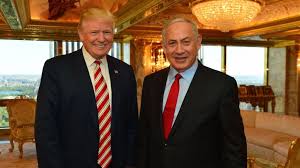
RNA - Petras, a professor emeritus of sociology at Binghamton University in New York, and adjunct professor at Saint Mary's University in Halifax, Canada, made the remarks in an interview with Press TV on Saturday.
On December 23, the UN Security Council passed Resolution 2334, which demands an immediate end to illegal settlement activities in the occupied Palestinian territories like East Jerusalem al-Quds.
The resolution was adopted after the US refused to veto it, reversing its longstanding policy of shielding Israel from condemnatory measures at the world body.
US President-elect Donald Trump and Israeli Prime Minister Benjamin Netanyahu tried to force the Obama administration to veto the resolution, but Washington abstained from the vote, allowing the measure to pass.
“I think it’s very clear that the UN resolution will be reversed by the incoming Trump administration. I think the Zionists are firmly in control of US policies towards Israel and Palestine,” Professor Petras said.
“I don’t think that the agreement, the condemnation of Israel and the abstention by the US will be repeated in the next presidency. I think it’s already indicated by President-elect Trump that he will reverse that agreement, abstention and criticism of Israel,” he stated.
“I am afraid that Israel’s leaders are talking about annexing the entire territory of Palestine and converting it into a Jewish state, in fact an apartheid de facto state,” the analyst pointed out.
“And, I don’t see Europeans or Arab countries are prepared to take any measures or sanctions if the US and Israel follow that line,” concluded Petras, who has several books on Middle Eastern political issues.
According to reports, a day before the resolution was adopted in a 14-0 vote, Netanyahu successfully pressured Trump to convince Egypt, which proposed the draft resolution, to withdraw it.
But New Zealand, Venezuela, Senegal and Malaysia resubmitted the proposal a day later, outmaneuvering the Israeli regime.
Trump said last year that he wanted to be “very neutral” on Israel-Palestinian issues, but as his presidential campaign progressed he started speaking disparagingly of Palestinians and often expressed his strong support for Israelis and the regime in Tel Aviv.
On the other hand, Netanyahu, who had been a strong supporter of Democratic candidate Hillary Clinton during her campaign, jumped to the Trump bandwagon after his stunning victory over Clinton in the November 8 presidential election.
847/940